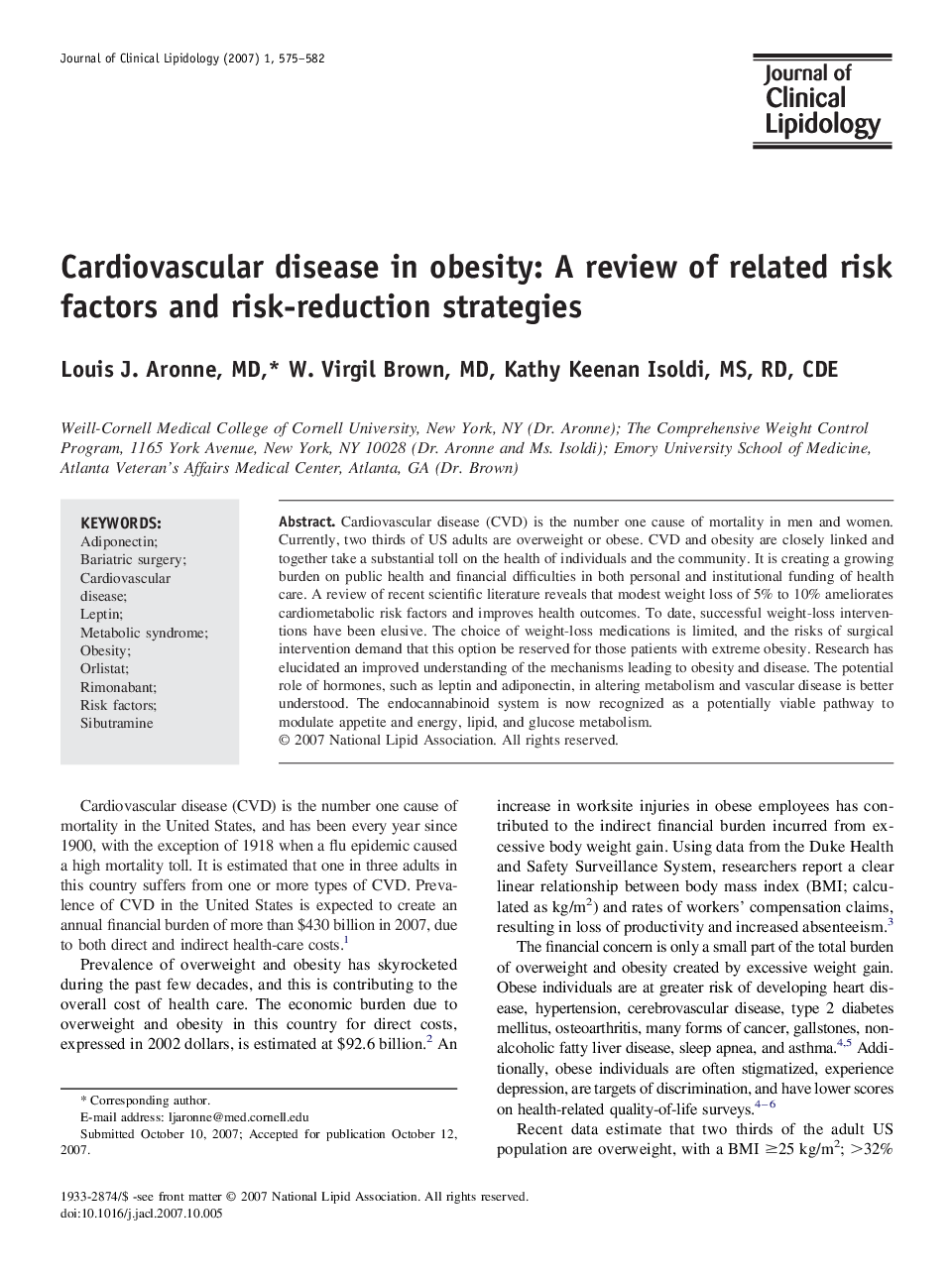| Article ID | Journal | Published Year | Pages | File Type |
|---|---|---|---|---|
| 2966997 | Journal of Clinical Lipidology | 2007 | 8 Pages |
Cardiovascular disease (CVD) is the number one cause of mortality in men and women. Currently, two thirds of US adults are overweight or obese. CVD and obesity are closely linked and together take a substantial toll on the health of individuals and the community. It is creating a growing burden on public health and financial difficulties in both personal and institutional funding of health care. A review of recent scientific literature reveals that modest weight loss of 5% to 10% ameliorates cardiometabolic risk factors and improves health outcomes. To date, successful weight-loss interventions have been elusive. The choice of weight-loss medications is limited, and the risks of surgical intervention demand that this option be reserved for those patients with extreme obesity. Research has elucidated an improved understanding of the mechanisms leading to obesity and disease. The potential role of hormones, such as leptin and adiponectin, in altering metabolism and vascular disease is better understood. The endocannabinoid system is now recognized as a potentially viable pathway to modulate appetite and energy, lipid, and glucose metabolism.
